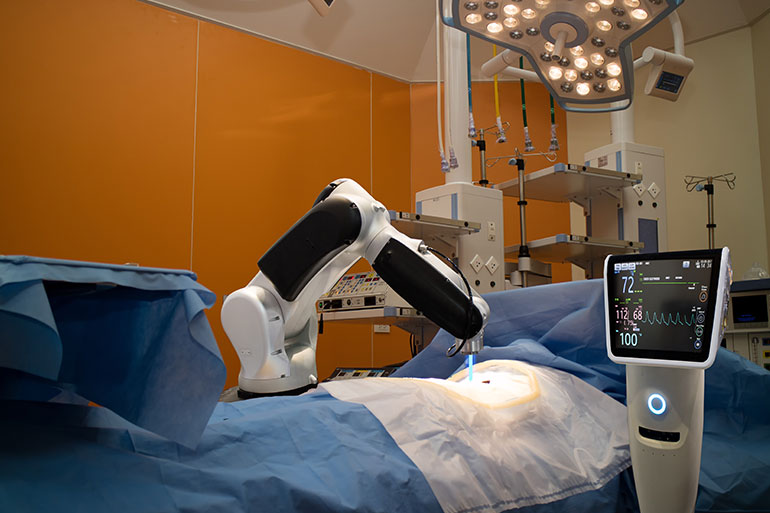
AI’s Revolution in Medical Diagnostics and TreatmentAI’s Revolution in Medical Diagnostics and Treatment Artificial intelligence (AI) is revolutionizing the field of medicine, empowering healthcare professionals to deliver more accurate diagnoses, optimize treatments, and enhance patient outcomes. Diagnostics: * Image Recognition: AI algorithms can analyze medical images (e.g., X-rays, CT scans, MRIs) with unprecedented speed and accuracy. This enables the detection of subtle abnormalities that may be missed by the human eye, leading to earlier and more precise diagnoses. * Pattern Recognition: AI can identify patterns in patient data that are difficult for humans to detect. For example, it can analyze patient records to identify risk factors for diseases, such as cardiovascular disease or cancer, enabling preventive interventions. * Natural Language Processing: AI-powered tools can extract key information from medical text, such as patient histories, lab reports, and clinical notes. This automates the process of data extraction, reducing the time healthcare professionals spend on manual tasks and improving the accuracy of patient records. Treatment: * Personalized Medicine: AI can analyze individual patient data to create personalized treatment plans. By considering a patient’s genetic profile, lifestyle, and medical history, AI algorithms can identify the most effective therapies and minimize side effects. * Drug Discovery: AI can accelerate the development of new drugs and treatments. It can screen millions of molecules to identify potential drug candidates, predict their efficacy and safety, and even design new molecular structures. * Surgical Assistance: AI-powered robotic systems can assist surgeons in complex procedures, providing real-time guidance and enhancing precision. This reduces the risk of complications and improves patient recovery. Benefits: AI’s integration into medical diagnostics and treatment offers numerous benefits, including: * Improved Accuracy: AI algorithms can analyze vast amounts of data and identify patterns that are beyond human capabilities, leading to more accurate diagnoses. * Time Savings: AI automates many routine tasks, such as data extraction and analysis, freeing up healthcare professionals to focus on patient care. * Cost Reduction: AI can help reduce healthcare costs by enabling more precise diagnoses, optimizing treatments, and improving efficiency. * Enhanced Patient Outcomes: By providing personalized treatment plans, reducing complications, and accelerating drug development, AI ultimately contributes to better patient outcomes. Challenges and Considerations: While AI has the potential to revolutionize healthcare, there are important considerations to address: * Data Privacy: AI algorithms rely on vast amounts of patient data, which raises concerns about privacy and data security. * Bias: AI algorithms can be influenced by biases in the data they are trained on, which could lead to unfair or inaccurate diagnoses. * Trust and Acceptance: Healthcare professionals and patients need to trust AI systems and understand their limitations to fully embrace their use in medical settings. Conclusion: AI is transforming the field of medicine, providing healthcare professionals with powerful tools to improve diagnostics and treatment. By analyzing data with unprecedented speed and accuracy, AI is enabling personalized medicine, accelerating drug discovery, and enhancing surgical precision. As AI continues to evolve, it has the potential to revolutionize healthcare delivery, improve patient outcomes, and ultimately lead to a healthier future.
Posted inNews